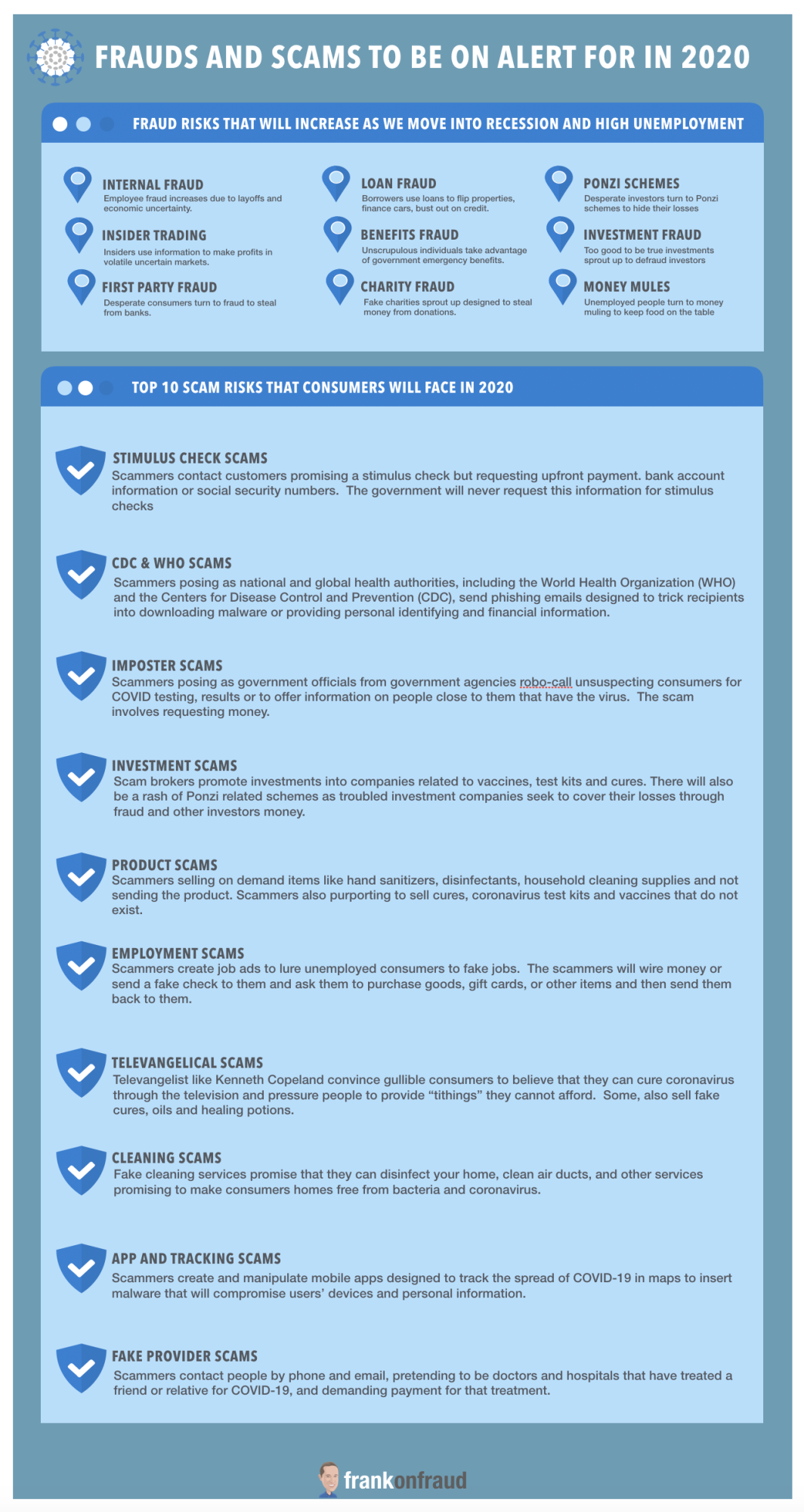A perfect storm happens when a rare combination of events happens at the same time and aggravates the situation. The results are a disaster.
And March 2020 appears to be that perfect storm for fraud.
That perfect storm has 3 factors converging on the world at once 1) unprecedented global fear and panic, 2) a dramatic rise in unemployment and financial strain, and 3) an internet-connected world that has been forced into isolation.
Experts across the world are bracing for a big uptick in fraud and scams in the coming months.
While the world struggles to contain the virus, scammers are using this rare opportunity to capitalize on the rampant fear and uncertainty to steal from the vulnerable.
The FTC, SEC, Fincen, FBI and government agencies all rang the alarm bells last week and began warning financial institutions to prepare for more fraud.
So what can you do, to prepare? You can start by becoming aware and educating others about what to look for.
Top 10 Scams That Will Impact Consumers This Year
Here are the top 10 Scams that you need to watch out for in the next 12-18 months.
#1 – Stimulus Check Scams
Scammers contact customers promising a stimulus check but requesting up-front payment. bank account information or social security numbers. The government will never request this information for stimulus checks
#2 – CDC Scams
Scammers posing as national and global health authorities, including the World Health Organization (WHO) and the Centers for Disease Control and Prevention (CDC), send phishing emails designed to trick recipients into downloading malware or providing personal identifying and financial information.
#3 – Imposter Scams
Scammers posing as government officials from government agencies robo-call unsuspecting consumers for COVID testing, results or to offer information on people close to them that have the virus. The scam involves requesting money.
#4 – Investment Scams
Scam brokers promote investments into companies related to vaccines, test kits and cures. There will also be a rash of Ponzi related schemes as troubled investment companies seek to cover their losses through fraud and other investors money.
#5 – Product Scams
Scammers selling on-demand items like hand sanitizers, disinfectants, household cleaning supplies and not sending the product. Scammers also purporting to sell cures, coronavirus test kits and vaccines that do not exist.
#6 – Employment Scams
Scammers create job ads to lure unemployed consumers to fake jobs. The scammers will wire money or send a fake check to them and ask them to purchase goods, gift cards, or other items and then send them back to them.
#7 – Televangelist Scams
Televangelist like Kenneth Copeland convince gullible consumers to believe that they can cure coronavirus through the television and pressure people to provide “tithings” they cannot afford. Some, also sell fake cures, oils, and healing potions.
#8 – Cleaning Scams
Fake cleaning services promise that they can disinfect your home, clean air ducts, and other services promising to make consumers homes free from bacteria and coronavirus.
#9 – App and Tracking Scams
Scammers create and manipulate mobile apps designed to track the spread of COVID-19 in maps to insert malware that will compromise users’ devices and personal information.
#10 – Fake Provider Scams
Scammers contact people by phone and email, pretending to be doctors and hospitals that have treated a friend or relative for COVID-19, and demanding payment for that treatment.
A Helpful Infographic Of What We Can Expect More of In 2020
I created a one-page infographic that you can download here of the fraud and scam risk that you should be aware – Top Fraud and Scams 2020




